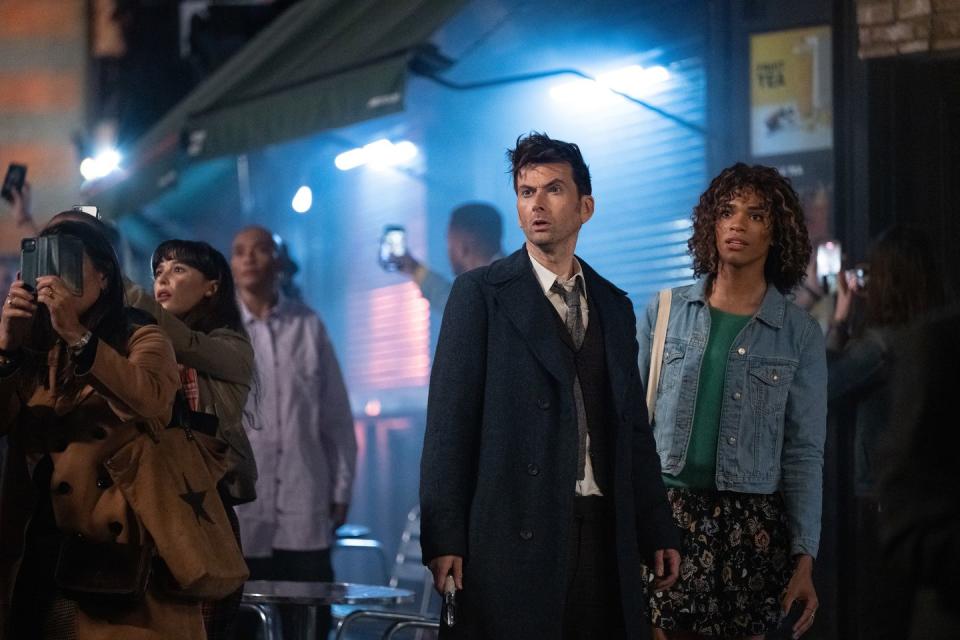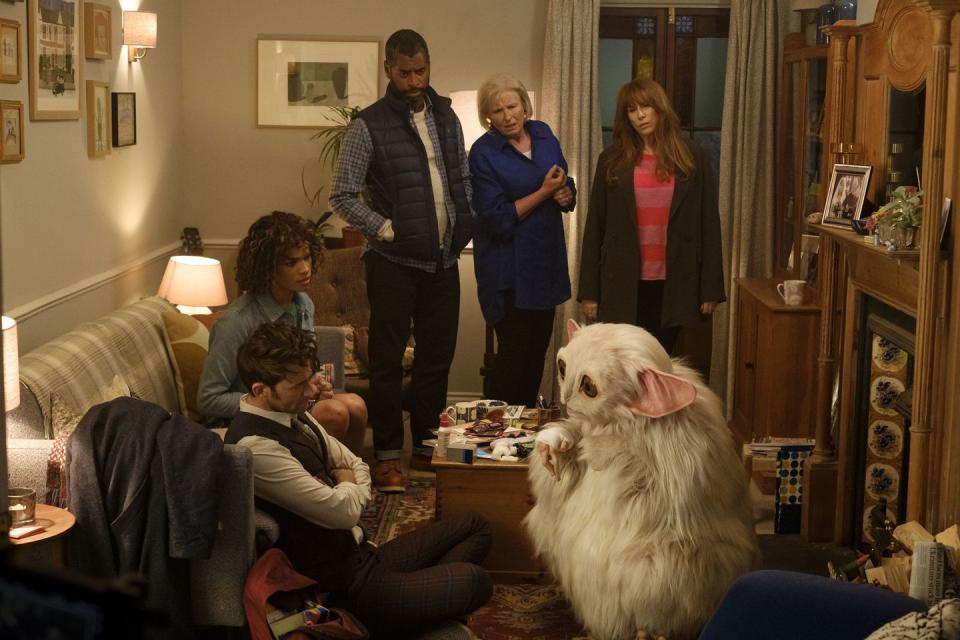'Sorry critics, Doctor Who has always been woke'

Whovians, the time has come. Doctor Who is back for its 60th anniversary, meaning it's time to dust off your toy sonic screwdrivers (just me? Oh, OK) and immerse yourself in the Doctor's wonderful world.
The beloved BBC sci-fi series returned to screens on Saturday (25th November) with David Tennant and Catherine Tate reprising their roles as the Doctor and Donna Noble, plus new stars like Heartstopper's Yasmin Finney and Ruth Madeley joining the cast.
But, some viewers took to social media to complain that the series has become "too woke" with its newest transgender storyline, while also criticising the diverse cast. While it's hard to believe the importance of representation and inclusion is still something we're having to debate, I'm here to also tell you that Doctor Who has always been political and inclusive.

In case you need catching up, Yasmin plays Donna's daughter, Rose Noble, in the anniversary special, and her identity as a transgender woman was front and centre of the highly-anticipated episode, 'The Star Beast'.
We see Rose deal with transphobic bullies who use her dead name (the name a transgender person was given at birth that they don't use after transitioning), while her mother is super protective of her.
Then, we also see Rose encouraging the Doctor to ask the Meep's (voiced by the icon that is Miriam Margolyes) pronouns, and her identity ultimately saves the world from destruction.

While many quite rightly saw the episode as a celebratory inclusion of trans identity, others took to social media to criticise the series and accuse it of being "woke" propaganda under the hashtag #RIPDoctorWho, which trended nationwide. But, to those critics, I ask: um, have you ever watched Doctor Who?
The show has always had LGBTQ+ representation. From Captain Jack Harness to River Song portrayed by Alex Kingston, there's been tonnes of openly gay characters throughout the entirety of the show, with Yasmin's character, Rose, only expanding the show's already existing portrayals of the community.
Plus, the series has never shied away from political issues, either. When Jodie Whittaker played the most recent version of the Doctor, the series explored racism, the American civil rights movement, colonialism, the partition of South Asia and more. She also had two companions of colour in Mandip Gill's Yasmin Khan and Tosin Cole's Ryan Sinclair, adding to the diverse cast.
Oh, and you can even go back to Doctor Who episodes that aired more than 40 years ago that openly critiqued misogyny, war, racism, capitalism and other politically-charged topics. So, for those calling out the series, their anger is completely misplaced.
reminder that the show has been “woke cringe” since 1963 and it was never for bigoted close-minded people anyway 💙💙 #DoctorWho pic.twitter.com/J3Mz7QxjoP
— adri ‼..,, DW SPOILERS (@rinezhcs) November 25, 2023
On the diversity in the series, returning show runner Russell T. Davis told Yahoo: "It's not just a Doctor Who thing for me, it's something I and a lot of other writers are very keen to do, to be progressive and to reflect more of society."
Representation matters. It makes people feel included and a part of society, and at a time where anti-transgender sentiment is being allowed to openly fester, the character of Rose is a perfect addition to an already forward-thinking, diverse and inclusive show.
As a long time fan of Doctor Who, I can't wait to see more of Rose and what else the show will bring in this new era. Now, bring on Ncuti Gatwa!
Doctor Who is streaming on BBC iPlayer.
You Might Also Like

 Yahoo News
Yahoo News 
